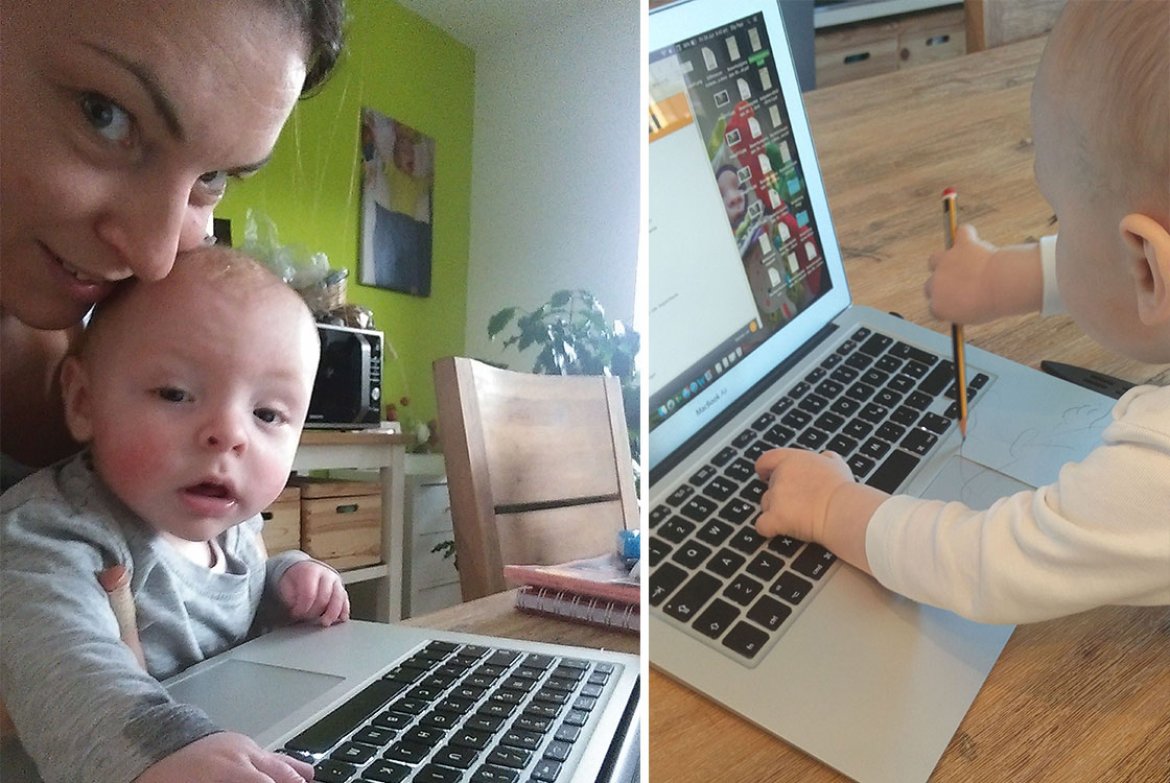
Studying with a baby
- What are you currently studying and do you work as well as going to university?
I am studying WCIS in my 4th semester. My son was born in July 2015. Since then I have been on maternity leave, but in fact I haven’t worked since January 2015 because I was unwell during my pregnancy. During my first semester at university, until January 2015, I studied and worked full time. From January onwards I went down to 20 hours a week.
- What was your main reason for choosing the FH Kufstein Tirol?
The alternative was a Master at the University of Innsbruck, where I did my Bachelor in economics. I live between Kufstein and Rosenheim, so getting to Innsbruck would have been difficult despite the fact I receive a grant from the government because I worked for several years before going to uni. A lot of the courses in Innsbruck would have been ones with compulsory attendance, so I would have had to go to Innsbruck a lot – and that would have been pretty expensive. Moving to Innsbruck was not an option for me because my partner has an excellent job in Rosenheim. I also found the courses at the FH Kufstein Tirol more appealing. I applied for DIM and WCIS and was offered a place for both.
- What is it like combining university studies and family life? Which personal challenges have you faced?
The babies in our family have always been very quiet and calm, so that made the idea of studying with a child less intimidating. However, my son is quite the opposite: he loves action. If I drive under 80km/h on the motorway or wait with the buggy at the lights to cross the road, he immediately wakes up. When he finally goes to bed at around 6:00 p.m. I am normally exhausted, so it is hard to then motivate myself to do something for university. If I want to revise or do exercises for class I need a babysitter. My boyfriend has flexible working hours but he was promoted to a management position last year and can’t always be at home on Friday afternoons. That’s why on two occasions I have had to take my son with me to university on Friday.
- What support do you receive from the FH Kufstein Tirol in order to help you combine university and family life?
There were some courses in the summer semester which I was not able to attend because I was unwell during my pregnancy. The university let me write essays instead. They gave me plenty of time to do them and it was a really enjoyable experience. During my Bachelor course in Innsbruck I was used to learning a lot at home on my own. I almost never went to the lectures. I have noticed that this way of learning is good for me – I often learn more on my own than by working in a group or sitting in a lecture. The director of studies in Kufstein always tries to find compromises and solutions. That makes things a lot easier for me. Of course, there are still some things which I don’t manage to get done. But that is my responsibility – even if I sometimes get a bit frustrated.
- What could the FH Kufstein Tirol do to improve?
I come from a classic university. I maybe did only one or two courses each semester, but I completed these and did the exam at the end. That’s not possible at a university of applied sciences like the FH Kufstein. Because of that I will miss quite a few courses and have to take the exams in these subjects in front of a board of examiners. That’s a shame since I would prefer do the exams like everyone else. I am currently repeating a year and trying to focus on just a few subjects where I want to get good grades. It’s not the best solution for me – I don’t like failing courses, but there is no other way at the moment. I think it would be good to have a different system. For example, it would be better if the university recognized lower grades (not just the best grades 1 and 2) when you repeat a year or that you don’t automatically fail the class and lose the first chance to take the exam if you miss more than 20% of a lecture. This is something which doesn’t only affect parents with young children. Students who have to care for family members can also be affected. In fact, there are lots of issues which can lead to this kind of situation.
- Do grants provide help?
The grants system is mainly designed for classic universities and not so much for universities of applied sciences like the FH Kufstein Tirol. If you have a child then you get financial support for an additional three semesters. Instead of having 4+1 I now have 4+1+3 semesters during which I am entitled to a grant. The idea is that you do fewer courses and take longer to complete your studies. However, that doesn’t work at a university of applied sciences. If I take one semester completely off university then I lose my right to financial support during this time – despite the fact that lots of students with children need this source of income. I receive €791 per month, which is a lot of money for me.